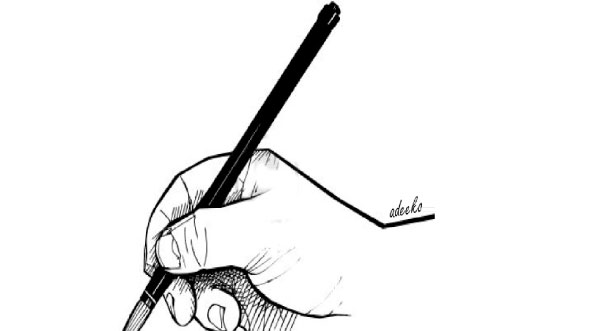

Altman, in an interesting book, “Paper Ambassador” aptly captures today’s event, the 150th anniversary of Postage Stamps in Nigeria as worth reflecting on. Worth reflecting on in the sense that this year also coincides with the time the world of The Post equally marks the 150th anniversary of the Universal Postal Union (UPU) which is the umbrella body of about 192 member nations of which Nigeria had once been a very reliable and formidable member since 1961 as the 86th member.
The intent today is to reflect on not only the significance of time às “a duration of consciousness” but at different interludes how these stamps and array of what they are issued to reflect have been a great paper ambassador and Nigeria’s public relations outreach to the entire world.

It is gratifying to note that barely 34 years after the advent of the first postage stamp of, and in Britain, the Penny Black by Sir Rowland Hill, the first issue of a set of postage stamps in Nigeria came on 10th June 1874. It is today heartening to note with the span of 150 years of postage stamps in Nigeria, the stamps functional roles have been equally very immense here in Nigeria as they are all over the world.
Postage stamps have diversified functions beyond its popular indication to authenticate prepayment for mail transmission through the post office.
Postage stamp collecting, “Philately” has helped to inform, educate and entertain numerous users of postage stamps for numerous purposes such as fostering tax dues, capturing historical and cultural heritage, events, personalities of note, serves as national ambassador, artistic excellence, branding of sovereignty and also international membership and relationships.
Philately is a hobby, business and humanity’s gamut of socialisation processes, its promotion and advancement remain linking the heritage of the past with the present and still futuristic in nature and ambits.
Discussion of anything and any sort on the advent of postage stamps far 150 years ago would not but array the pre-colonial, the colonial and post-colonial eras and preliminary history of Postal Service in Nigeria far back in 1852 in Lagos.
Of course, without the Postal Service, postage stamps would not have been introduced but with the advent of The Post and Nationhood, postage stamps are more than mere pieces of paper.
More than mere pieces of paper because serious minded individuals, be they collectors or not, when in contact with the postage stamps would no doubt be informed, educated or even relaxed with the arrays of the nation and the postage stamps of many other nations of the world.
An excerpt from the Soliloquy of A Postage Stamp indicates:” I am the world’s greatest picture chronicle and miniature encyclopedia. I map communities, countries and continents and reveal views from every strange remote corner of the earth.”
The artistic talents of artists and the associated printing technology constitute the encouraging signals as to what are to be featured on postage stamps by the issuing authority, majorly the postal service of such a country as well as the dictates established in international relationship.
Our great artists have greatly captured the historical, culture, flowers and fauna of natural resources and industry , of agriculture and architecture including sports and athletics both locally and at the Olympic Games levels too amongst numerous others on the Nigerian postage stamps and allied stationeries.
The Nigerian postage stamps during the colonial era used to portray the portraits of the monarch and queens of Great Britain but with the attainment of independence on October 1, 1960 Nigerian stamps no longer bear the portraits of the colonialists. The first set of such stamps were printed by Waterlow &Son’s Limited, London. Since then an additional 55 other sets were printed up till January 1973 by printing companies in London, Israel, Paris and Nigerian Mint. From October 1 1960 to end of March 1991 a total of 140 sets of stamps have been issued on different themes, subjects and topical tilts. Though the number of sets of stamps being issued by the Nigerian Postal Service have greatly been dwindling in context and content. The Nigerian Postal Service on stamp issues has lately been unremarkable, especially since the advent of politicians as Postmasters General of the Federation since 2016. The reality of a nation without a vibrant postal service and issuance of regular postage stamps is a nation obliterated in annals of global, continental and regional historical advancement.
The Nigerian Philatelic Service or its Bureau is this year marking another milestone of 54 years of its establishment.
I remembered as if it were yesterday, Mr Iranloye, Mrs Agnes Okonye, Mr Akanimoh and his staff, Mrs Otun; Mrs Salawu Okafor including others as great staff of the Bureau as General Managers and the supporting staff respectively. Ugo C Ugo, Tunji Olaniyonu, Femifola Durosomo, Mrs Folake Oladapo, Mrs Funmi Ogunlana and now Funmilayo Esiri as General Managers of the Nigerian Philatelic Service have also played one role other at the Bureau.
Similarly, one cannot forget members of the Stamp Selection Committee of the Nigerian Philatelic Service which then comprised members of staff like Wahab Matepo, Razaq Alabi, and my humble self Taiye Olaniyi. On the other side of the divide and principal and respected members of the aforementioned committee were Pa Fagbenro, a stamp dealer, Gabriel from National Commission for Museum and Monuments, Mrs Abara from National Council of Arts and Culture, Mr Noren both an artist and representative of the Nigerian Printing and Minting Company and a few others one cannot remember but were a good company in the selection of what should reflect on the Nigerian postage stamps.
Great artists like late Mr Lasisi, fantastic woman Mrs Adeyeye Abanikanda, Mr Osuji, Noren and my friend and colleague Godwin Taiwo Faluyi, who greatly and variously partook in the designs of the Nigerian postage stamps.
Wonderful Nigerians that the Nigerian government probably could also have given national award for their great contributions in advancing the course of philatelic development and promotion include Prince Anifalaje, Senator Dr. Amadu Ali, M.O Zaccheaus, Pa Dawodu, Rasheedat Adebimpe, Sola Akinolore, Ayeni and Eddy Akpan, who till date, help to sustain philatelic development in Nigeria.
Similarly, it is important that collectors and dealers be treated as major stakeholders in building a virile Nigeria through the portal of philately.
Dimensions associated with the issuance of fake stamps are burgeoning issues especially in Africa and Nigeria is not insulated hence, the need for NIPOST functionaries and government to join hands with stakeholders to make best of bad situation.
Exactly 30 years ago, the Nigerian Postal Service marked the 120th Anniversary of Postage Stamp in Nigeria with pomp and pageantry during Mr Joshua Bamigbele’s tenure as the acting Postmaster General of the Federation. It was a great event for which a video documentary was produced by me at that time
In the same token, the then Lagos Philatelic Club of which I was a patron in collaboration with the Freedom Park, jointly celebrated the 60th Independence Anniversary of Nigeria in October, 2020 with the philatelic and allied exhibitions at the Freedom Park Broad Street, Lagos.
Taiye Olaniyi, a retired postman, sent in this from Lagos.
The beauty of it all today is whether or not the dying Nigerian Postal Service ever thought of celebrating this great day or year with the issuance of postage stamps, the Nigerian Postal Service shall remain remarkable for giving me the opportunity to conduct my Master’s degree thesis entitled, “Postage Stamp as Medium of Communication” in the Department of Communication and Language Arts, University of Ibadan 30 years ago.
I must earnestly appreciate the late Postmaster General, Mr Nathaniel Zome, during whose tenure I completed the Master’s course and the European Economic Community, E.E.C for the scholarship and sponsorship of the course. May God edify the lives of both Engineer Taiwo Olukolu the then Postmaster General and my immediate boss, Hussaina Ato under whose tenure the project was sent to the libraries of the Nigerian Postal Institute, Egor, Benin, the Pan African Postal Union, Arusha, Tanzania and the Universal Postal Union, Berne, Switzerland. lt is disheartening that this important date and event in the annals of our national life is simply allowed to fizzle out without a sign of its celebration nor captured on the Nigeria postage stamps as we used to have those days.
The advent of the multiple use of internet and social media is impacting on letter writing and contact with postage stamps. However, that shouldn’t obliterate the glowing fact that postage stamps are more than mere pieces of paper but are: “A portrait Gallery, Living Reminder of Events and Miniature Encyclopedia.”
For living to witness this 150th Anniversary of postage stamps in Nigeria, I say a happy 150th anniversary to all philatelists, fellow collectors, children and young collectors in Nigeria and throughout the world.
To God be the glory.
ALSO READ: What you should know about recent cholera outbreak in Nigeria








